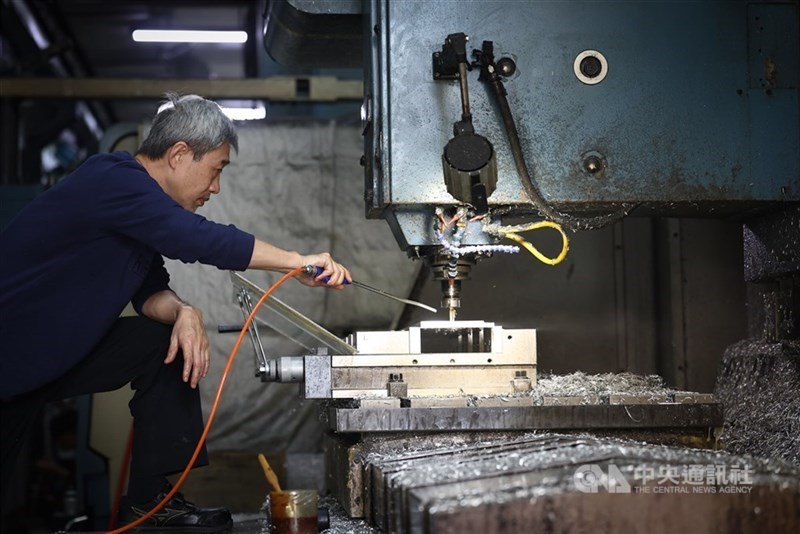
Taipei, June 24 (CNA) Business sentiment in Taiwan's manufacturing sector weakened for a fourth straight month in May to its lowest level in 29 months due mainly to uncertainty over America's tariff policy, the Taiwan Institute of Economic Research (TIER) said Tuesday.
The TIER's latest composite index gauging business sentiment among local manufacturers fell 4.74 points from a month earlier to 85.83 in May, marking the fourth consecutive monthly decline and a new low since hitting 85.97 in December 2022.
The service sector indicator, meanwhile, also moved lower by 0.35 points from a month earlier to 85.32, marking the fifth straight monthly decline, TIER data showed.
Despite solid demand in industries such as artificial intelligence (AI), high performance computing and cloud computing services, business revenue in the wafer foundry and semiconductor packaging and testing sectors declined slightly in May, according to the TIER.
The decline was caused in part by downstream wafer and packaging clients getting early deliveries to avoid potential tariffs, resulting in a high comparison base, the think tank explained in its report.
In addition, the significant appreciation of the Taiwan dollar in May led to more noticeable fluctuations in revenue for the export-oriented manufacturing sector.
Continued weak demand for certain non-high-tech products, coupled with pricing pressure from overseas competitors, also led manufacturers to adopt a more cautious outlook on the economic climate during the month, the TIER said.
Looking ahead, rising tensions in the Middle East, particularly between Israel and Iran, have sparked concerns about energy, shipping, and global economic stability, it said.
The lack of progress in trade negotiations between the U.S. and other countries is also adding to global economic uncertainty, the TIER said.
According to a survey conducted in May, most manufacturers' economic outlooks for the next six months reflect a wait-and-see approach, the TIER said in its monthly report.
TIER Economic Forecasting Center Director Gordon Sun (孫明德) argued, however, that recent global developments indicate a potential turning point has arrived.
On the U.S.' "reciprocal" tariffs, Sun said he expected Taiwan-U.S. trade negotiations to yield results soon, and exchange rate fluctuations have become less volatile than those seen in previous months.
Also, if a ceasefire in the Israel-Iran conflict is achieved, then the three major variables -- tariffs, exchange rates, and the Middle East conflict -- would all be trending in a positive direction, allowing businesses to breathe a sigh of relief in the second half of the year.
Echoing Sun, TIER President Chang Chien-yi (張建一) said that given that crude oil prices sank by 7 percent on Monday amid signs of a ceasefire between Israel and Iran, this round of the crisis appears to be easing.
Chang also indicated that compared to the reciprocal tariffs, tariffs on semiconductors would have a greater impact on Taiwan, home of Taiwan Semiconductor Manufacturing Co. (TSMC), the world's largest dedicated independent semiconductor foundry.
Meanwhile, TIER's construction sector indicator fell for the fifth straight month to 90.41, shedding 0.1 points.
Liu Pei-chen (劉佩真), a researcher at TIER's Taiwan Industry Economics Database, said the economic outlook for the second half of the year remains uncertain due to unresolved tariff issues.
In addition, increased housing supply, cross-strait relations and geopolitical conflicts are key variables affecting the local real estate market.
- Business
Hon Hai and Teco to team up, target AI data center capabilities
07/30/2025 07:39 PM - Politics
Taiwan's top envoy to Germany tapped as next EU representative: Source
07/30/2025 07:05 PM - Cross-Strait
Taiwan offers condolences over deadly China floods
07/30/2025 07:00 PM - Politics
Lai apologizes for recall defeat, vows support for Aug. 23 votes
07/30/2025 06:54 PM - Culture
'Mr. Democracy 2.0': Digital exhibition brings Lee Teng‑hui to life via AI
07/30/2025 05:53 PM